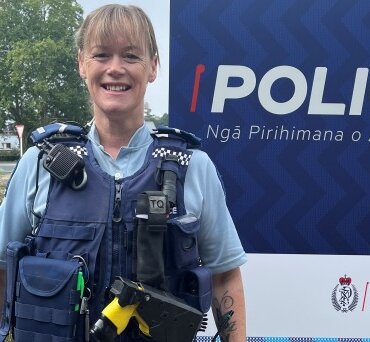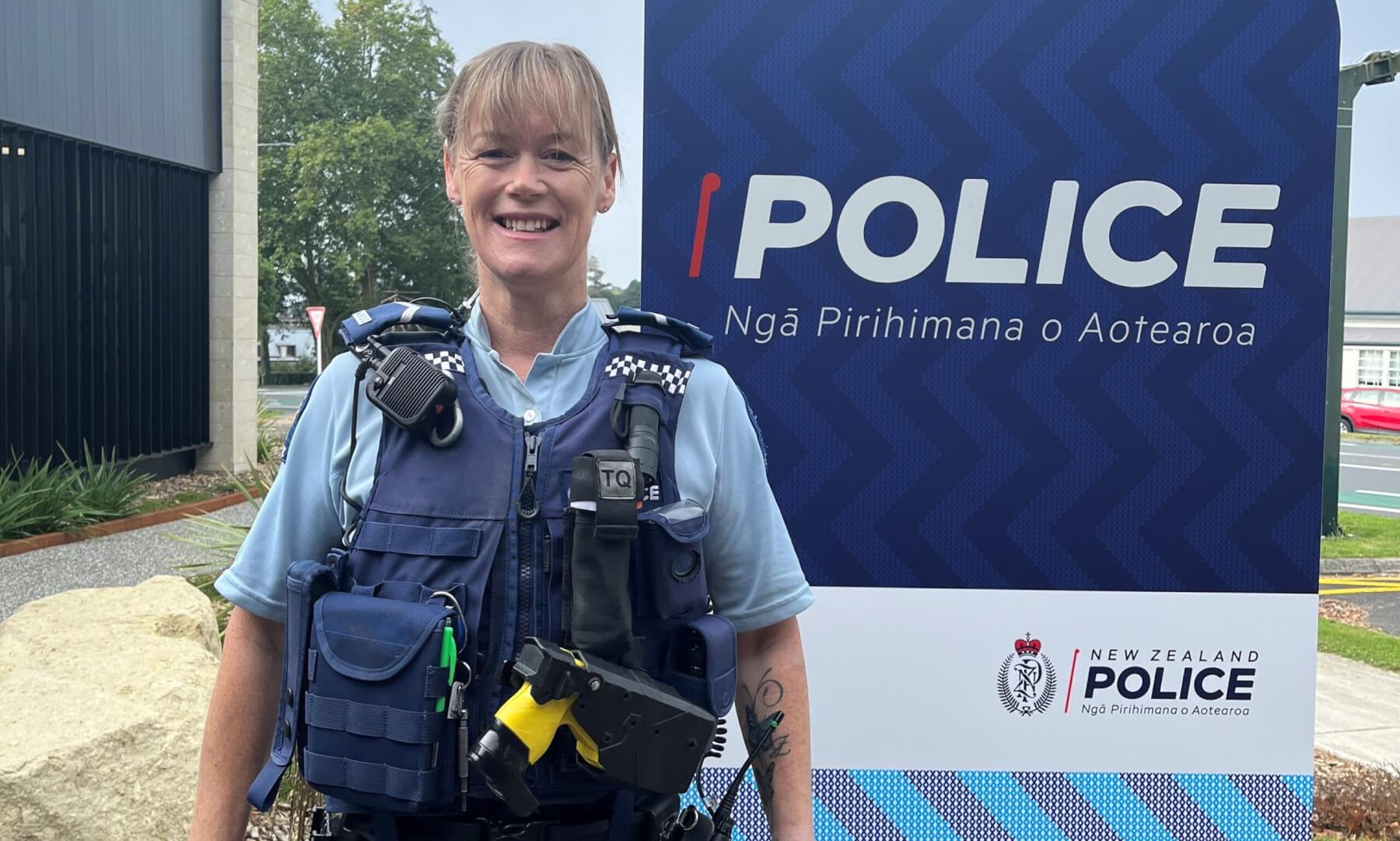
Deb Hann
This week I have a cautionary scam tale that the victim is happy for me to share.

Senior constable Deb Hann inside the police station. Photo: Aaron Radford.
In March 2025, an elderly member of our community was contacted by an unknown person on Facebook messenger. From that, an online conversation evolved. The man told her he was a Canadian cancer specialist.
His messages were friendly, becoming affectionate over the weeks and he even shared family photos. Communication moved from Facebook messenger, to Whatsapp and email, including a phone call. The man made plans to meet the victim when she was holidaying in Australia, however he did not arrive, saying he’d been stopped at the airport. He also sent the victim a personalised heart necklace with his and hers photos as a gift.
Eventually, the man asked the victim to help pay for things. By this time, feeling he was her good friend, she agreed. Ultimately, the victim would purchase and provide iTunes card to him with a total value of around $3000. Finally this month, the man said he would be flying to New Zealand to be with the victim. When he was due to depart however, the victim received a distressing email from gangsters saying they had kidnapped the man and beaten him. It contained a photo of the man with tape over his mouth, visible injuries and restrained on a seat. A ransom request was to follow. Police were contacted by the victim’s family.
This is an example of how scammers can be convincing and groom their victims over months. A reverse google photo search showed that the kidnap photo was manipulated from one originally posted on the Internet by the West Seneco Police Department in America. The head of the man had been swapped for that of the photo the scammers had used to communicate with our victim. The tape and injuries had been digitally added. Otherwise, clothes, the background and seat remained identical to the original. A similar search showed the personalised heart pendant was readily available on Alibaba for US$8. It is certain that the man the victim thought she was talking to never existed, except as a means to take money from her.
The lesson from this story is to be suspicious of any unsolicited approaches online. Anyone can set up a profile using whatever details and photos they like. If anyone you are talking to asks you to loan or gift them money using prezzy cards or iTunes cards, don’t. It will be a scam.

Senior Constable Deb Hann – On the Beat








